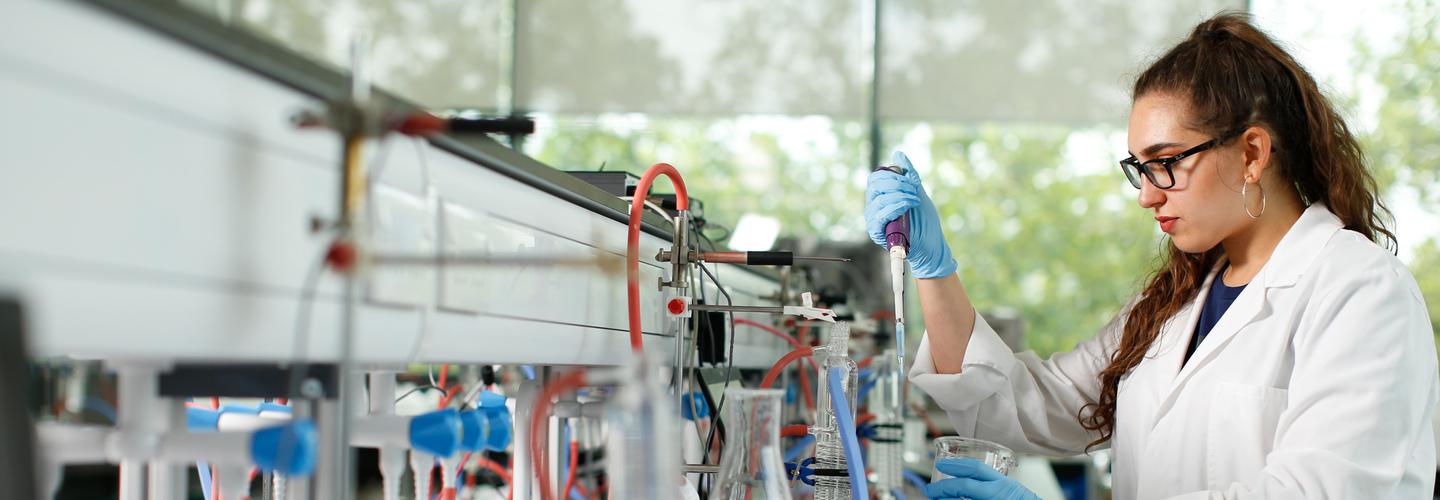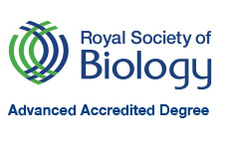Sign up for updates
Interested in studying at the University of Hertfordshire and want to sign up to our mailing list to learn more about our facilities, living in the UK and student life? Use the form below and our team will also keep you informed of key updates such as events near you, applications opening and more!
BSc (Hons) Pharmacology
Key information
-
Typical offer:
Entry requirements -
Fees: See below
Full details -
UCAS code: B210
-
Institute code: H36
-
Study abroad option
-
Work placement option
Find out more
Why choose this course?
- 100% satisfaction for academic support (NSS, 2024, based on the average of Q15-16)
- 4th in the UK for pharmacology (Daily Mail University Guide, 2025)
- 1st in the East of England for medical technology and bioengineering (CUG, 2025)
You have an interest in how medicines work. You want to learn about their actions in living systems. As the demand for new drugs continues, the need for specialists to discover and test them grows. Join our team of aspiring pharmacologists to learn how drugs are made, developed, and marketed. We’ll introduce you into the world of medicine in an engaging and practical way. Explore the methods used to test the effectiveness and safety of new medicines. Get hands on experience in our modern Science Building with great teaching and research laboratories. You’ll be able to use well equipped laboratories spread over five storeys of innovative facilities. You will work alongside researchers, academics, industry specialists and other students.
Our flexible programme introduces you to a range of Biomedical Science topics in your first year before you begin to specialise in Pharmacology for your remaining studies. If your interests change in the first year, then it’s easy to swap to another Biomedical pathway. That’s why we give you the chance to experience a range of modules before committing to the Pharmacology pathway. We believe in flexibility. We will guide you to find your passion to study what you really love.
While you explore various new and exciting areas in this degree, we will be with you all the way. You’ll get a personal tutor, who’ll support you in gaining subject-specific skills in scientific writing, data interpretation, and communication. Take advantage of peer support too in group workshops. Share your breakthroughs and discuss patient case studies. This programme is the stepping-stone into a wide range of scientific careers in the Health-care Industry. We also have students graduating to take up places at Medical School and on Masters and PhD programmes at top British universities. We are proud of our professional and aspiring pharmacologists, and we are very proud of our degree. You’ll also gain plenty of transferable skills to enter broader fields like teaching or business if you prefer.
We are very proud of our professional and aspiring pharmacologists and of our course. So, if you are interested in a degree programme in which you will be learning current developments in pharmacology from experts in the field, on a course with good links to the pharmaceutical sector, then this is the course for you. Please get in touch with our Admissions team. We would like to hear from you.
Graduate Stories:
Find out more about our teaching staff across the Biosciences
Get in touch
Follow us on twitter: @UH_AskBIO
Email: askbio@herts.ac.uk
What's the course about?
Pharmacology covers all aspects of drugs and their uses as medicines. You’ll learn how new drugs are discovered and tested. You’ll understand why they are effective in treating disease. You’ll explore how they work at a whole body, tissue, and receptor protein level. Governments and companies spend billions of pounds on pharmacological research. The demand for well-trained pharmacology graduates is fierce. We’ll teach you what you need to know to be a highly sought-after employee in the industry.
Your first year is about building a solid foundation in bioscience. You’ll study alongside students from other disciplines. You’ll obtain an initial grounding in chemistry, molecular biology and genetics, microbiology, and human physiology with pharmacology. You’ll learn how to describe physiological processes in the body. This will be at cell, tissue, organ and organism level. Your theory will be backed up with extensive practical work to develop key laboratory skills.
In your second year, you start specialising. You’ll start to look at the stages of drug development. You’ll learn the need for clinical trials. Explore the controversial issues around trialling human volunteers. You’ll uncover how medication keeps us in good health and how they save lives. You’ll learn how pain relief drugs like ibuprofen and aspirin work in the body. Understand the process of chemotherapy for cancers. You’ll hear amazing success stories as well as the limitations of existing therapies.
Work placement/study abroad option: Between your second and final year, you’ll have the option to study abroad or do a work placement for up to a year. Not only will this give you an amazing experience to talk about but will also give your CV a boost. If you’d rather go straight to your final year, that’s absolutely fine too.
In your final year you’ll find that you have grown to love certain topics that you just need to delve deeper into. You’ll learn how to find new targets for drug development. How could you treat Alzheimer’s Disease? What role do our genes play in determining safe dosages of medicines for each of us? Then, you can select from all modules to focus your project on. You could look at important disorders such as diabetes and Parkinson’s Disease. Or maybe you could look at the toxicity of Novel Psychoactive Substances. It’s totally up to you. Just know, from hypothesis to conclusion, we are with you all the way.
You have 20 hours of contact time, with lectures and workshops taking up about 6-10 hours per week, while the remaining time is devoted to practical work. Throughout your degree, you will be assessed in a variety of ways. This will include exams, literature reviews, portfolios, lab reports, practical's and presentations. Coursework assessments are generally 50-100% per module.
Your main campus is College Lane
This is where the creative arts, science and health-related subjects are based. This means you’ll share the campus with future nurses, scientists, artists and more. You can use the common rooms to relax with friends, work out in the 24-hour gym or have a drink in our on-campus pub or cafes. We also have restaurants for you to eat in or grab something on the go. Our Learning Resources Centres are open 24/7, which means you can study whenever suits you best. Want to pop over to the other campus? You can take the free shuttle bus or walk there in just 15 minutes.
What will I study?
Degree programmes are structured into levels, 4, 5 and 6. These correspond to your first, second and third/final year of study. Below you can see what modules you’ll be studying in each.

